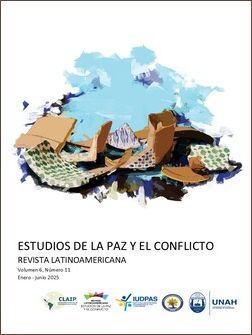Child protection at the international level: the role of the United Nations
DOI:
https://doi.org/10.5377/rlpc.v6i11.18925Keywords:
Colombia, children, United Nations, armed conflictAbstract
This research proposes an analysis of the role of the United Nations in combating the recruitment of children, based on a case study of the armed groups involved in the Colombian conflict since the 2000s. Our aim is to understand the limits of the organization in preventing or combating the use of child soldiers in Latin America, focusing on the country with the highest incidence of this phenomenon, Colombia. Based on documentary research, we observed that the recruitment of child soldiers in Colombia differs from other realities in the world in that it presents forced recruitment as the exception and voluntariness as the main axis. This peculiarity highlights the role of the child as an agent of his or her own choice and the low effectiveness of international resolutions, such as those sanctioned by the United Nations, which are based on a universal model of childhood in order to prevent armed groups from recruiting children. The results suggest that the promotion of essentialist and universalizing visions by the organization hinders engagement aimed at mitigating the problem at the local level.
Downloads
305
HTML (Português (Brasil)) 177
XML (Português (Brasil)) 9
EPUB (Português (Brasil)) 71
Downloads
Published
How to Cite
Issue
Section
License
Copyright (c) 2024 Latin American Journal of Peace and Conflict Studies

This work is licensed under a Creative Commons Attribution 4.0 International License.
The journal's contents are published under a Creative Commons Attribution 4.0 license (CC BY 4.0). This license allows third parties to share (copy and redistribute the material in any medium or format) and adapt (remix, transform and create from the material for any purpose, including commercial), as long as the authorship and first publication in this journal (Revista Latinoamericana Estudios de la Paz y el Conflicto, Universidad Nacional Autónoma de Honduras - Consejo Latinoamericano de Investigación para la Paz, DOI of the work) is acknowledged, a link to the license is provided and it is indicated if changes have been made to the original. The terms of the license are available online at http://creativecommons.org.




